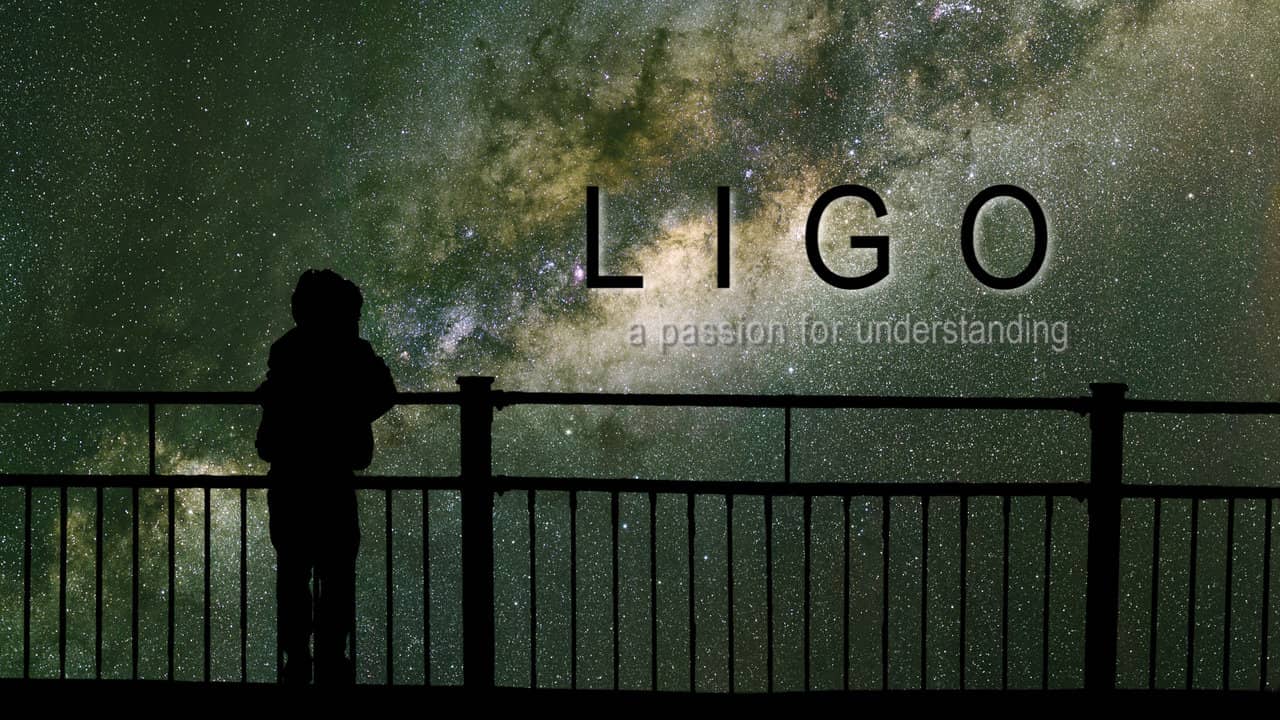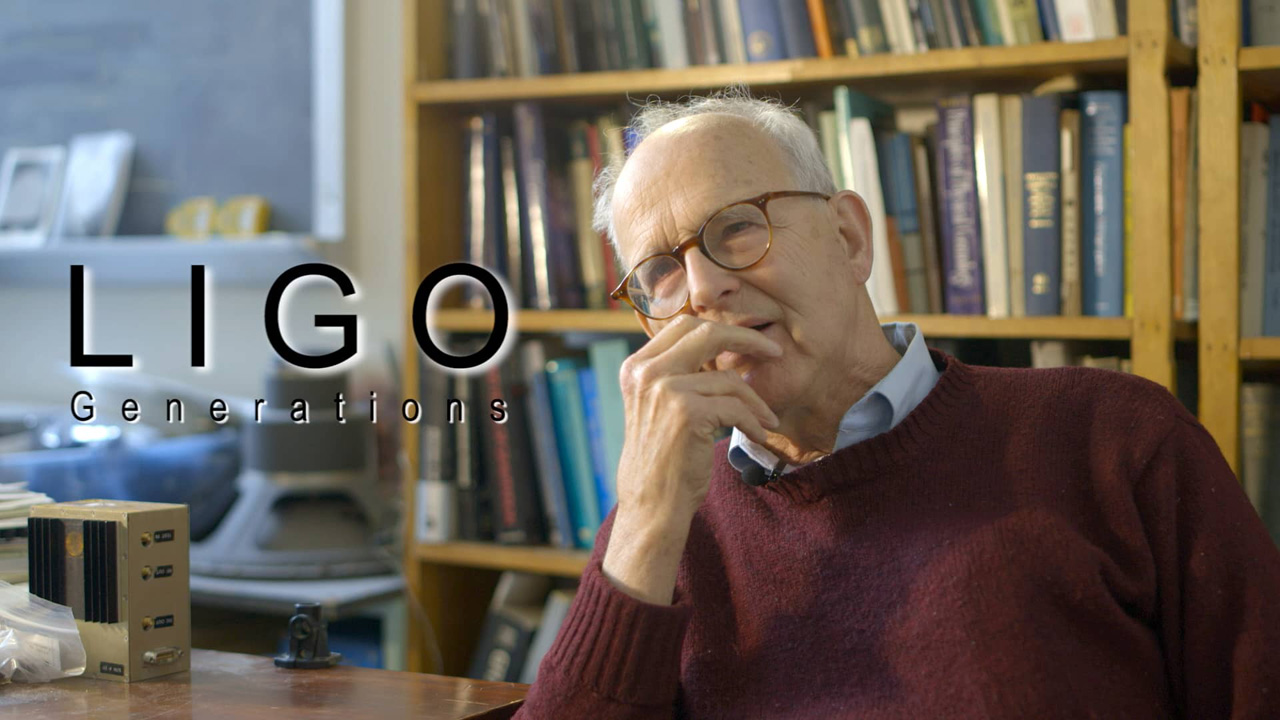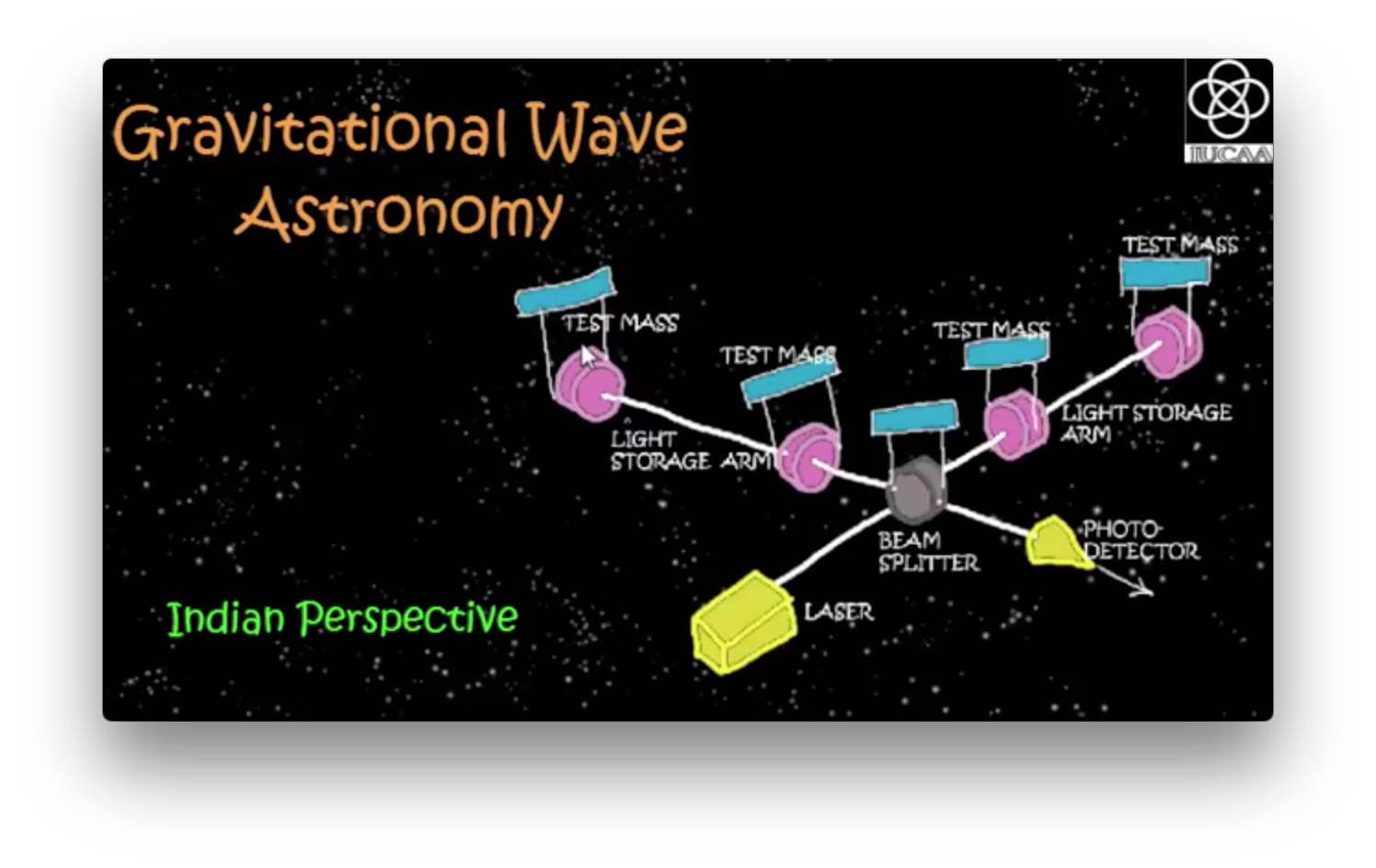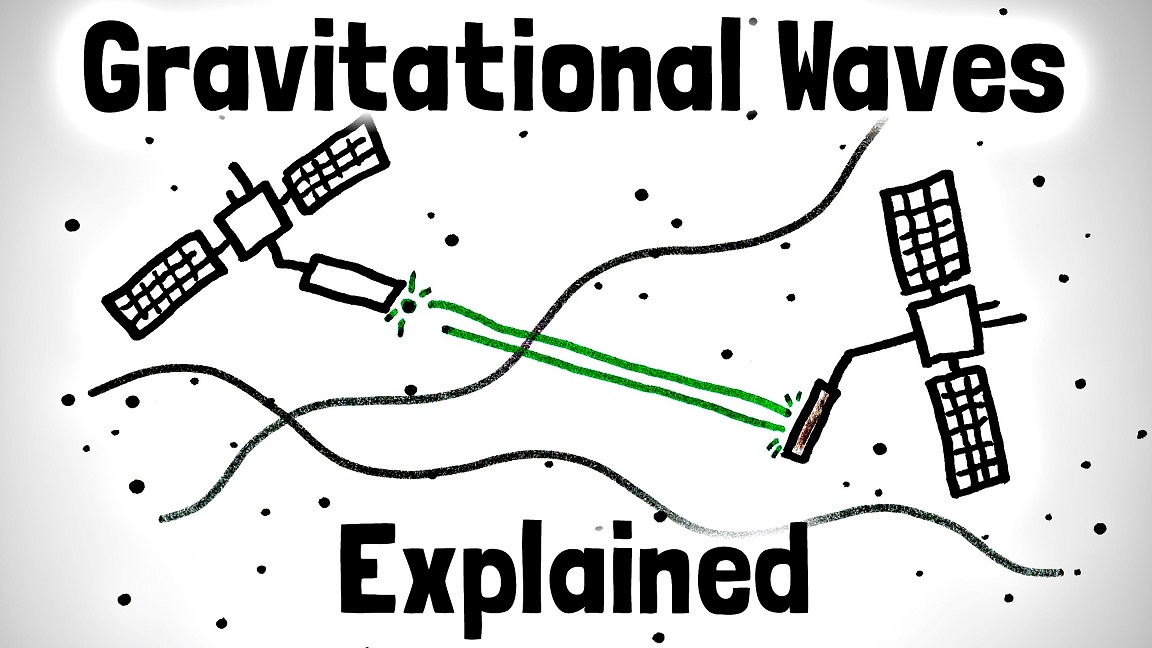
Gravitational waves are ripples in space-time, the 4-dimensional fabric of the Universe, caused by massive objects in motion. Sources of gravitational waves are objects such as neutron stars or black holes orbiting around each other at ever increasing speeds until they merge, or stars that blow themselves up.

These were first predicted by Albert Einstein soon after he formulated the theory of General Relativity in 1915. If we could observe gravitational waves, they would not only allow us to test the predictions of his theory, in regions of strong gravity, but also serve as a tool for expanding our understanding of the Universe.

Video: LIGO, A Passion for Understanding
A 20-minute film that follows the scientists working to create one of the most powerful scientific tools ever made: the Laser Interferometer Gravitational-Wave Observatories, or LIGO for short.

Video: LIGO - Generations
The film shares the passion and motivation of individuals who have worked for nearly three decades on a single science experiment. We engage in stories of those who invented a whole new branch of physics in order to hear the universe in a whole new way.

Video: Gravitational Wave Astronomy | Indian Perspective
The film, made at IUCAA, before the discovery of GW, shares the Indian Perspective.

Video: Gravitational Waves Explained
Physicists Umberto Cannella and Daniel Whiteson explain what they are and why they'll cause a big ripple in our understanding of the Universe.
Source: PhD Comics

Video: Gravitational Waves Explained
This short film provides an energetic and entertaining explanation of Gravitational Waves, GW detectors & GW projects that you can help with -- all in one minute!
Source: MinutePhysics
What are Gravitational Waves?
Gravitational waves are travelling disturbances in the curvature of space-time caused by the motions of matter.
How are Gravitational Waves detected?
Gravitational waves interact with matter by compressing objects in one direction while stretching them in the perpendicular direction.
What does Gravitational Wave Research involve?
The GW fluctuations are very tiny and can be lost in noise generated within or in the environment of the detector.
Latest News
-
GW230529 – Collision of a neutron star with a compact object in the mass-gap LIGO-India could hold the key to solving this cosmic mystery
-
Testing Einstein’s Theory of Gravity with Gravitational Waves Researchers from the LIGO-India Scientific Collaboration (LISC) contribute to important achievements in Gravitational Wave Science putting Einstein’s Theory to test, by analysing data from a recently compiled catalog
-
Newly detected merging Black Holes establish Gravitational Waves as a powerful tool to explore the unseen Universe Indian researchers contribute to breakthroughs in various frontiers of Cosmology and Astrophysics using a newly compiled Gravitational Wave Transient Catalog
-
All-sky, all-frequency directional search for persistent gravitational waves from Advanced LIGO’s and Advanced Virgo’s first three observing runs - O1, O2 & O3
-
LIGO spots the first hybrid stellar collision LIGO’s sensational discovery of a new source of gravitational waves: collisions between Neutron Stars and Black Holes
-
A Symphony of Giant Monsters Searching for Intermediate-Mass Black Hole Binaries in Advanced LIGO and Advanced Virgo's Third Observing Run
-
When gravity bends gravity: Did gravitational-wave astronomers catch “Gravitational Lenses” at work?
-
GW190521 – First clear evidence of Intermediate Mass Black Holes (IMBH) The heaviest and most distant binary black hole merger detected so far
-
GW190814 – Discovery of the lightest black hole or the heaviest neutron star? LIGO-India will provide major help in solving such mysteries
-
First detection of unequal mass binary merger Mass asymmetry generated detectable signal from higher multipoles
-
Five binary merger candidates within one month of LIGO-Virgo’s O3 run Long Nights for Astronomers!
-
LIGO and Virgo are starting the third observing run with enhanced sensitivity Squeezed light to significantly stretch the observable volume
-
Environmental clearance given to LIGO-India
-
First detection of gravitational-waves from colliding neutron stars
-
VIRGO joins LIGO for the Observation Run 2
